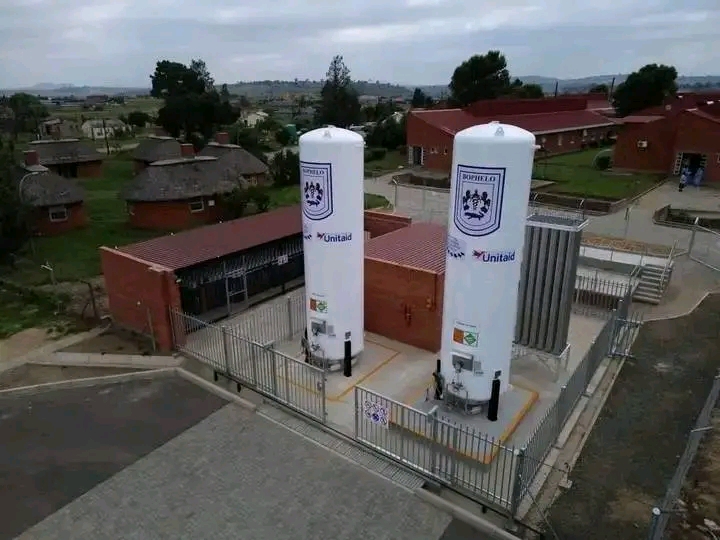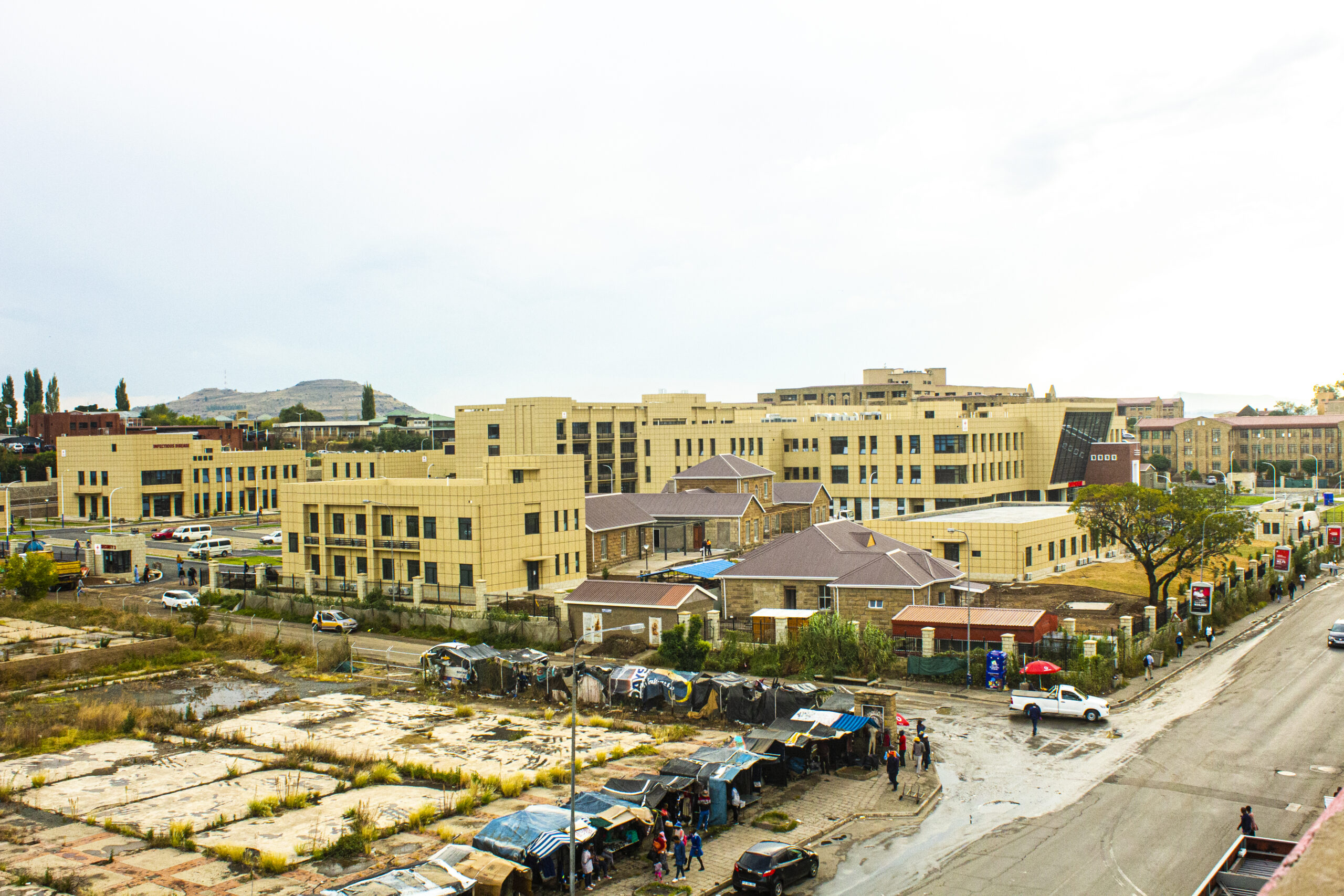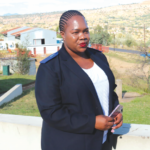Ntsoaki Motaung
Health experts recently hailed the launch of a groundbreaking oxygen hub in Mafeteng as a pivotal milestone in bolstering healthcare services and curbing preventable fatalities in the country.
Described as an indispensable lifeline, medical oxygen is poised to transform the landscape of maternal and child health while addressing critical health emergencies.
Dr Nnyane Letsie, the Director General for Health Services at the Ministry of Health, stressed the critical role of oxygen in childbirth and its significant impact on reducing child and maternal mortality rates.
“Oxygen is essential and needs to be available in all clinics. Some babies are born short of oxygen, resulting in disabilities mainly caused by its lack during childbirth,” emphasised Dr Letsie.
Highlighting the profound consequences of oxygen shortages, she pinpointed cortical blindness as a common disability resulting from insufficient oxygen during crucial moments.
Moreover, she shed light on ex-miners grappling with chronic lung diseases, requiring continuous oxygen support, some even reliant on home-based oxygen to survive.
Dr Letsie highlighted how the availability of oxygen would diminish the need for referrals as some patients were previously redirected due to oxygen shortages at healthcare facilities.
She lamented the distressing reality faced by healthcare professionals who, despite possessing life-saving skills, witnessed patient fatalities primarily due to the persistent challenge of oxygen scarcity.
The District Medical Officer (DMO) of Mafeteng, Dr Mpho Seleke, emphasised that the inauguration of the oxygen hub aligns with the government’s pursuit of delivering essential critical and emergency care services.
Dr Seleke highlighted the grim revelation brought forth by the COVID-19 pandemic, underscoring the critical necessity of dependable medical oxygen.
He emphasised that out of the 77 recorded deaths in Mafeteng, a significant majority resulted from the unavailability of oxygen, shedding light on the severe consequences of inadequate oxygen supply for medical treatments.
Dr Richard Banda, the Country Representative of the World Health Organisation (WHO), highlighted the crucial role of medical oxygen in treating respiratory illnesses like pneumonia, chronic conditions, and in managing surgeries and trauma care.
Dr Banda emphasised the escalating challenge of ensuring affordable and sustainable access to oxygen, not just in Lesotho but in numerous countries globally.
He underscored that medical oxygen was a critical life-saving resource, especially for vulnerable groups such as “the elderly, pregnant women, and newborns, who frequently require oxygen therapy”.
Beyond its immediate therapeutic benefits, Dr. Banda stressed the pivotal role of medical oxygen in achieving universal health coverage.
He linked its provision to “reducing maternal, newborn, and child mortality rates, preventing premature mortality resulting from chronic conditions, managing road traffic injuries, and expediting progress toward universal health coverage”.
Calling for a strategic approach, he urged the government and health development partners “to prioritise access to medical oxygen in health policies, strategies, and funding”.
This prioritisation, he emphasised, was crucial to support universal health coverage, bolster pandemic preparedness, and ensure a robust response to health crises.
Prime Minister Samuel Ntsokoane Matekane, overseeing the facility’s launch, hailed the Government of Lesotho’s collaboration through the Ministry of Health with the Clinton Health Access Initiative (CHAI) as a testament to their dedication to Basotho citizens’ well-being.
Matekane emphasised the concerted effort to fortify national oxygen supplies in alignment with the Draft National Emergency Medical Referral Policy.
This policy encompasses the Oxygen Strategy and its Scale-Up Plan, as well as the National Critical Care Strategy.
“As the Ministry of Health spearheads the implementation of these pivotal documents, I urge all our Health Partners to align their plans with these strategies aimed at enhancing access to oxygen,” Matekane said.
CHAI Country Director, Esther Mandara, explained that the station encompasses two specialized tanks, each holding 14 tons of liquid oxygen.
One tank is dedicated to serving as the primary medical oxygen supplier for Mafeteng Hospital, ensuring continuous and direct oxygen supply to all hospital beds.
“This station marks the country’s inaugural large-scale oxygen facility, capable of filling up to 100 50-liter cylinders per hour. To support seamless cylinder filling and operational functions, CHAI has trained technicians and procured 500 50-liter cylinders, all primed for use,” Mandara detailed.

Your Trusted Source for News and Insights in Lesotho!
At Newsday Media, we are passionate about delivering accurate, timely, and engaging news and multimedia content to our diverse audience. Founded with the vision of revolutionizing the media landscape in Lesotho, we have grown into a leading hybrid media company that blends traditional journalism with innovative digital platforms.












